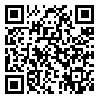BibTeX | RIS | EndNote | Medlars | ProCite | Reference Manager | RefWorks
Send citation to:
URL: http://jdisabilstud.org/article-1-2823-en.html
2- Assistant Professor, Department of Psychology, Shahrood Branch, Islamic Azad University, Shahrood, Iran
3- Associate Professor, Department of Psychology, Faculty of Literature and Humanities, University of Guilan, Rasht, Iran
Abstract
Background & Objectives: Attention Deficit Hyperactivity Disorder (ADHD) is one of the most common neurodevelopmental disorders in childhood that affects the cognitive and behavioral features of people. This study aimed to compare the effectiveness of anger management and parenting training on executive functions in children with attention deficit hyperactivity disorder.
Methods: The present study was quasi–experimental with a pretest–posttest design. The study was conducted on one control group and two experimental groups. The study population included all male students with attention deficit hyperactivity disorder studying in primary schools in Tehran City, Iran, and their mothers in the academic year 2020–2021. Of these students and their mothers, 36 people were selected using the available sampling method. They were randomly assigned to three groups (12 students in the anger management training group, 12 mothers in the parenting skills training group, and 12 students in the control group). The inclusion criteria were as follows: male students studying in primary schools, students diagnosed with attention deficit hyperactivity disorder based on the study screening test, without concurrent developmental or other mental disorders, not under medication and psychological interventions in the last year, and consent of parents and students for study participation. The exclusion criteria included more than two sessions of absence from the educational sessions, withdrawal from treatment, or non–cooperation in the study. Data collection tools of this study included Connors’ Rating Scale Questionnaire –Teacher Form (Connors, 1970) and Behavior Rating Inventory of Executive Function–Parent Form (Gioia et al., 2000). The obtained data were studied using analysis of covariance in the SPSS22. The significance level was set at p values less than 0.05.
Results: The results showed that anger management training was effective in improving the organizational component of executive functions in children with attention deficit hyperactivity disorder (p<0.05). Anger management training was more effective than parenting skills training (p<0.05).
Conclusion: It can be concluded that anger management training had no significant effect on improving executive functions; however, it significantly improved the organizational component of executive functions in children with attention deficit hyperactivity disorder. Specialists can use relaxation training and positive inception to improve cognitive features such as executive functions in children with attention deficit hyperactivity disorder.
| Rights and permissions | |
 |
This work is licensed under a Creative Commons Attribution-NonCommercial 4.0 International License. |




